 W
WAngoss Software Corporation, headquartered in Toronto, Ontario, Canada, with offices in the United States and UK, is a provider of predictive analytics systems through software licensing and services. Angoss' customers represent industries including finance, insurance, mutual funds, retail, health sciences, telecom and technology. The company was founded in 1984, and publicly traded on the TSX Venture Exchange from 2008-2013 under the ticker symbol ANC.
 W
WApache Flume is a distributed, reliable, and available software for efficiently collecting, aggregating, and moving large amounts of log data. It has a simple and flexible architecture based on streaming data flows. It is robust and fault tolerant with tunable reliability mechanisms and many failover and recovery mechanisms. It uses a simple extensible data model that allows for online analytic application.
 W
WThe Aphelion Imaging Software Suite is a software suite that includes three base products - Aphelion Lab, Aphelion Dev, and Aphelion SDK for addressing image processing and image analysis applications. The suite also includes a set of extension programs to implement specific vertical applications that benefit from imaging techniques.
 W
WCatBoost is an open-source software library developed by Yandex. It provides a gradient boosting framework which attempts to solve for Categorical features using a permutation driven alternative compared to the classical algorithm. It works on Linux, Windows, macOS, and is available in Python, R, and models built using catboost can be used for predictions in C++, Java, C#, Rust, Core ML, ONNX, and PMML. The source code is licensed under Apache License and available on GitHub.
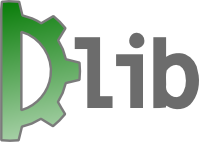 W
WDlib is a general purpose cross-platform software library written in the programming language C++. Its design is heavily influenced by ideas from design by contract and component-based software engineering. Thus it is, first and foremost, a set of independent software components. It is open-source software released under a Boost Software License.
 W
WEncog is a machine learning framework available for Java and .Net. Encog supports different learning algorithms such as Bayesian Networks, Hidden Markov Models and Support Vector Machines. However, its main strength lies in its neural network algorithms. Encog contains classes to create a wide variety of networks, as well as support classes to normalize and process data for these neural networks. Encog trains using many different techniques. Multithreading is used to allow optimal training performance on multicore machines.
 W
WELKI is a data mining software framework developed for use in research and teaching. It was originally at the database systems research unit of Professor Hans-Peter Kriegel at the Ludwig Maximilian University of Munich, Germany, and now continued at the Technical University of Dortmund, Germany. It aims at allowing the development and evaluation of advanced data mining algorithms and their interaction with database index structures.
 W
WFeature Selection Toolbox (FST) is software primarily for feature selection in the machine learning domain, written in C++, developed at the Institute of Information Theory and Automation (UTIA), of the Czech Academy of Sciences.
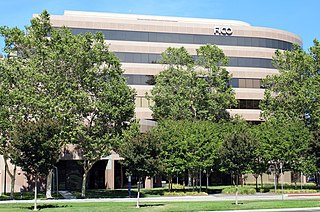 W
WFICO, originally Fair, Isaac and Company, is a data analytics company based in San Jose, California focused on credit scoring services. It was founded by Bill Fair and Earl Isaac in 1956. Its FICO score, a measure of consumer credit risk, has become a fixture of consumer lending in the United States.
 W
WGeneral Architecture for Text Engineering or GATE is a Java suite of tools originally developed at the University of Sheffield beginning in 1995 and now used worldwide by a wide community of scientists, companies, teachers and students for many natural language processing tasks, including information extraction in many languages.
 W
WApache Giraph is an Apache project to perform graph processing on big data. Giraph utilizes Apache Hadoop's MapReduce implementation to process graphs. Facebook used Giraph with some performance improvements to analyze one trillion edges using 200 machines in 4 minutes. Giraph is based on a paper published by Google about its own graph processing system called Pregel. It can be compared to other Big Graph processing libraries such as Cassovary.
 W
WGNU Octave is software featuring a high-level programming language, primarily intended for numerical computations. Octave helps in solving linear and nonlinear problems numerically, and for performing other numerical experiments using a language that is mostly compatible with MATLAB. It may also be used as a batch-oriented language. Since it is part of the GNU Project, it is free software under the terms of the GNU General Public License.
 W
WGremlin is a graph traversal language and virtual machine developed by Apache TinkerPop of the Apache Software Foundation. Gremlin works for both OLTP-based graph databases as well as OLAP-based graph processors. Gremlin's automata and functional language foundation enable Gremlin to naturally support imperative and declarative querying, host language agnosticism, user-defined domain specific languages, an extensible compiler/optimizer, single- and multi-machine execution models, hybrid depth- and breadth-first evaluation, as well as Turing Completeness.
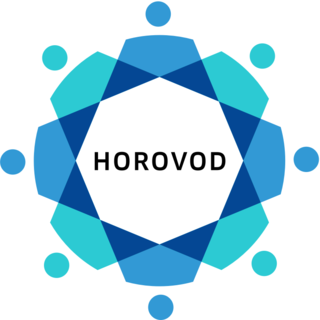 W
WHorovod is a free and open-source software framework for distributed deep learning training using TensorFlow, Keras, PyTorch, and Apache MXNet. Horovod is hosted under the Linux Foundation AI. Horovod has the goal of improving the speed, scale, and resource allocation when training a machine learning model
 W
WJulia is a high-level, high-performance, dynamic programming language. While it is a general-purpose language and can be used to write any application, many of its features are well suited for numerical analysis and computational science.
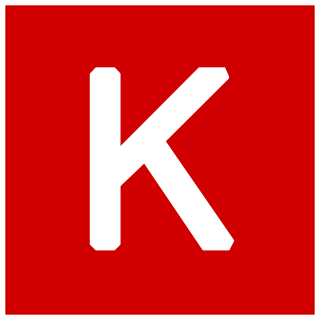 W
WKeras is an open-source software library that provides a Python interface for artificial neural networks. Keras acts as an interface for the TensorFlow library.
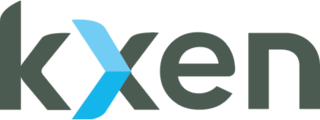 W
WKXEN was an American software company which existed from 1998 to 2013 when it was acquired by SAP AG.
 W
WMaple is a symbolic and numeric computing environment as well as a multi-paradigm programming language. It covers several areas of technical computing, such as symbolic mathematics, numerical analysis, data processing, visualization, and others. A toolbox, MapleSim, adds functionality for multidomain physical modeling and code generation.
 W
WMeeMix Ltd is a company specializing in personalizing media-related content recommendations, discovery and advertising for the telecommunication industry, founded in 2006.
 W
WMegvii is a Chinese technology company that designs image recognition and deep-learning software. Based in Beijing, the company develops artificial intelligence (AI) technology for businesses and for the public sector. In 2019, the company was valued at US$4 billion. Megvii is the largest provider of third-party authentication software in the world, and its product, Face++, is the world's largest open-source computer vision platform.
 W
WMicrosoft Cognitive Toolkit, previously known as CNTK and sometimes styled as The Microsoft Cognitive Toolkit, is a deprecated deep learning framework developed by Microsoft Research. Microsoft Cognitive Toolkit describes neural networks as a series of computational steps via a directed graph.
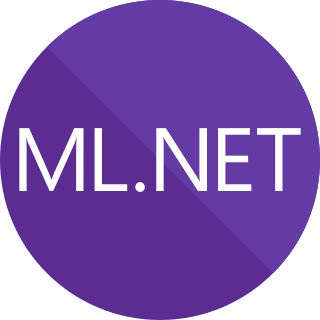 W
WML.NET is a free software machine learning library for the C# and F# programming languages. It also supports Python models when used together with NimbusML. The preview release of ML.NET included transforms for feature engineering like n-gram creation, and learners to handle binary classification, multi-class classification, and regression tasks. Additional ML tasks like anomaly detection and recommendation systems have since been added, and other approaches like deep learning will be included in future versions.
 W
Wmlpack is a machine learning software library for C++, built on top of the Armadillo library. mlpack has an emphasis on scalability, speed, and ease-of-use. Its aim is to make machine learning possible for novice users by means of a simple, consistent API, while simultaneously exploiting C++ language features to provide maximum performance and maximum flexibility for expert users. Its intended target users are scientists and engineers.
 W
WOrange is an open-source data visualization, machine learning and data mining toolkit. It features a visual programming front-end for explorative rapid qualitative data analysis and interactive data visualization.
 W
WPRAC is an interpreter for natural-language instructions for robotic applications developed at the Institute for Artificial Intelligence at the University of Bremen, Germany, and is supported in parts by the European Commission and the German Research Foundation (DFG).
 W
WR is a programming language and free software environment for statistical computing and graphics supported by the R Foundation for Statistical Computing. The R language is widely used among statisticians and data miners for developing statistical software and data analysis. Polls, data mining surveys, and studies of scholarly literature databases show substantial increases in popularity; as of September 2020, R ranks 9th in the TIOBE index, a measure of popularity of programming languages.
 W
WRapidMiner is a data science software platform developed by the company of the same name that provides an integrated environment for data preparation, machine learning, deep learning, text mining, and predictive analytics. It is used for business and commercial applications as well as for research, education, training, rapid prototyping, and application development and supports all steps of the machine learning process including data preparation, results visualization, model validation and optimization. RapidMiner is developed on an open core model.
 W
Wrnn is an open-source machine learning framework that implements recurrent neural network architectures, such as LSTM and GRU, natively in the R programming language, that has been downloaded over 100,000 times.
 W
WSAS is a statistical software suite developed by SAS Institute for data management, advanced analytics, multivariate analysis, business intelligence, criminal investigation, and predictive analytics.
 W
WScikit-learn is a free software machine learning library for the Python programming language. It features various classification, regression and clustering algorithms including support vector machines, random forests, gradient boosting, k-means and DBSCAN, and is designed to interoperate with the Python numerical and scientific libraries NumPy and SciPy.
 W
Wscikit-mutliflow is a free and open source software machine learning library for multi-output/multi-label and stream data written in Python.
 W
WSenseTime is currently the world's most valuable artificial intelligence (AI) company. It is established in Hong Kong with additional offices across China, Singapore, Japan, Abu Dhabi and the United States. The company has a portfolio of 700 clients and partners, including the Massachusetts Institute of Technology (MIT), Qualcomm, Honda, Alibaba, Weibo, and more. It was the world's first Artificial intelligence unicorn and is valued at over $7.7 billion.
 W
WShogun is a free, open-source machine learning software library written in C++. It offers numerous algorithms and data structures for machine learning problems. It offers interfaces for Octave, Python, R, Java, Lua, Ruby and C# using SWIG.
 W
WSketch Engine is a corpus manager and text analysis software developed by Lexical Computing Limited since 2003. Its purpose is to enable people studying language behaviour to search large text collections according to complex and linguistically motivated queries. Sketch Engine gained its name after one of the key features, word sketches: one-page, automatic, corpus-derived summaries of a word's grammatical and collocational behaviour. Currently, it supports and provides corpora in 90+ languages.
 W
WApache Spark is an open-source distributed general-purpose cluster-computing framework. Spark provides an interface for programming entire clusters with implicit data parallelism and fault tolerance. Originally developed at the University of California, Berkeley's AMPLab, the Spark codebase was later donated to the Apache Software Foundation, which has maintained it since.
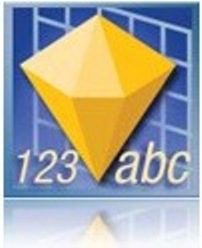 W
WIBM SPSS Modeler is a data mining and text analytics software application from IBM. It is used to build predictive models and conduct other analytic tasks. It has a visual interface which allows users to leverage statistical and data mining algorithms without programming.
 W
WTensorFlow is a free and open-source software library for machine learning. It can be used across a range of tasks but has a particular focus on training and inference of deep neural networks.
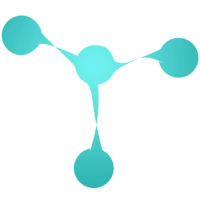 W
WTorch is an open-source machine learning library, a scientific computing framework, and a script language based on the Lua programming language. It provides a wide range of algorithms for deep learning, and uses the scripting language LuaJIT, and an underlying C implementation. As of 2018, Torch is no longer in active development. However PyTorch, which is based on the Torch library, is actively developed as of December 2020.
 W
WVowpal Wabbit is an open-source fast online interactive machine learning system library and program developed originally at Yahoo! Research, and currently at Microsoft Research. It was started and is led by John Langford. Vowpal Wabbit's interactive learning support is particularly notable including Contextual Bandits, Active Learning, and forms of guided Reinforcement Learning. Vowpal Wabbit provides an efficient scalable out-of-core implementation with support for a number of machine learning reductions, importance weighting, and a selection of different loss functions and optimization algorithms.
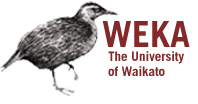 W
WWaikato Environment for Knowledge Analysis (Weka), developed at the University of Waikato, New Zealand, is free software licensed under the GNU General Public License, and the companion software to the book "Data Mining: Practical Machine Learning Tools and Techniques".
 W
WThe Wolfram Language is a general multi-paradigm computational language developed by Wolfram Research. It emphasizes symbolic computation, functional programming, and rule-based programming and can employ arbitrary structures and data. It is the programming language of the mathematical symbolic computation program Mathematica.
 W
WWolfram Mathematica is a modern technical computing system spanning most areas of technical computing — including neural networks, machine learning, image processing, geometry, data science, visualizations, and others. The system is used in many technical, scientific, engineering, mathematical, and computing fields. It was conceived by Stephen Wolfram and is developed by Wolfram Research of Champaign, Illinois. The Wolfram Language is the programming language used in Mathematica.
 W
WXGBoost is an open-source software library which provides a gradient boosting framework for C++, Java, Python, R, Julia, Perl, and Scala. It works on Linux, Windows, and macOS. From the project description, it aims to provide a "Scalable, Portable and Distributed Gradient Boosting Library". It runs on a single machine, as well as the distributed processing frameworks Apache Hadoop, Apache Spark, and Apache Flink. It has gained much popularity and attention recently as the algorithm of choice for many winning teams of machine learning competitions.